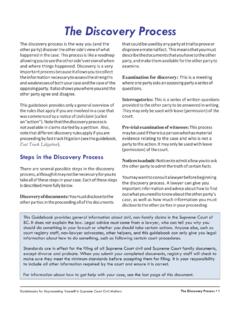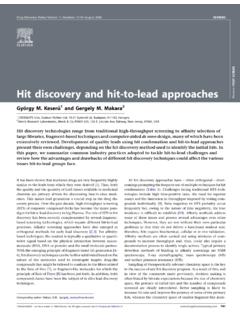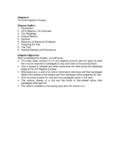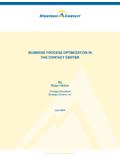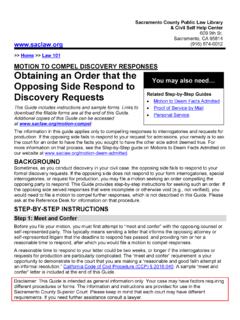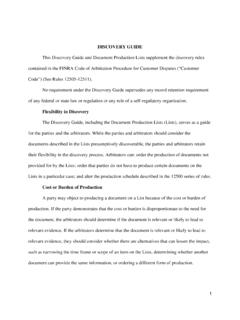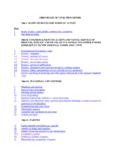Transcription of The Art Of Self Discovery - happinesscounseling.com
1 BY THE BESTSELLING AUTHOR OF HONORING THE self AND. HOW TO RAISE YOUR self -ESTEEM. NATHANIEL. BRANDEN. THE ART. OF self - Discovery A POWERFUL. TECHNIQUE. FOR BUILDING. self -ESTEEM. Previously titled TO SEE WHAT I SEE AND KNOW WHAT I KNOW THE ART OF self - Discovery . A Bantam Book PUBLISHING HISTORY. Published as a trade paperback by Bantam Books in January 1986 under the title To See What I See And To Know What I Know Bantam paperback edition/October 1993. Copyright 1985 by Nathaniel Branden. Revised edition copyright 1993 by Nathaniel Branden.
2 Library of Congress Catalog Card Number: 85-47792. ISBN 0-553-29753-8. Published simultaneously in the United States and Canada [NOTE FOR THIS DIGITAL VERSION: Because this book unfortunately has been relegated to the realm of out-of-print books by its publisher (readers might find used versions online, , on ), this digital format was created in 2012 so that these psychological memes can continue to spread far and wide. Many thanks to Nathaniel Branden for all his helpful work and for making this book a reality.]. ACKNOWLEDGMENTS. Many thanks to my Bantam editor, Linda Cunningham, whose helpful suggestions and criticisms are a deeply appreciated contribution.
3 Thanks to my agent, Gerard McCauley, whose counsel and friendship through many, many years have made our relationship unfailingly rewarding. And finally, once again, my love and thanks to my wife, Devers, who remains my best friend and toughest critic. Contents Introduction 1 ~ The Power of Sentence Completion 2 ~ Guidelines for Sentence Completion Work 3 ~ Introductory Exercises 4 ~ Exploring the Influence of Our Parents 5 ~ Our Child- and Teenage-Selves 6 ~ Exploring "Negative" Feelings and Emotions 7 ~ Exploring "Positive" Feelings and Emotions 8 ~ Exploring Sexuality 9 ~ self -Esteem 10 ~ The Sage- self CONCLUSION: Continuing the Journey Toward self - Discovery APPENDIX.
4 Recommendations for Further Study Introduction The ideal of self -understanding is at least as old as the great age of Classical Greece evidenced by the injunction "Know thyself" and the statement "The unexamined life is not worth living." Thoughtful men and women of all times and places have known or intuited that the self is a vast continent, filled with mystery and possibilities for adventure, and eminently as worthy of exploration as the external world. "Who am I?" remains the ultimate question of human existence, and it is a question we are continually challenged to answer anew, as we go on evolving.
5 We are the only species able to ask such a question; the only species able to ponder our own experience and its possible meaning. We ask: "Where am I. going and why?" "What do I want and why?" "What does it imply about me that I feel what I feel or that I do what I do?" We are beings who are able to think and, most extraordinary of all, to think about ourselves, to question our thoughts, feelings, and behavior. So that, as our life advances, we are able to answer the question "Who am I?" on deeper and deeper levels. Such, at least, is our potential.
6 But it is an option we can adopt only by choice. We are not compelled to think about ourselves or about anything else. We can move through our existence like sleepwalkers and this, tragically, is just how much of humanity chooses to live. The result is a chronic condition of self - estrangement and self -alienation. We are chronically lonely for ourselves. We remain a person we have not chosen to meet. But in the second half of this century, particularly in the United States, more and more people appear to be finding this state of a airs unacceptable.
7 Witness the explosion of interest in the field of psychology; the proliferation of books promising self -illumination; the seminars and workshops aimed at one form or another of self -realization; to say nothing of the increasing numbers of people seeking psychotherapy, not, as a rule, because they are more troubled than the rest of the population, but because they are more motivated to become actively involved in the process of their own growth. In my experience, many of the people who enter therapy come not so much because of any specific complaints they might mention at the first interview, but with the hope that they will become more intelligible to themselves, more in touch with the sources of their own behavior in other words, the age-old longing for self -understanding.
8 Not that self -understanding by itself guarantees successful growth or change. It doesn't. In fact, modern psychotherapy has discarded the belief that understanding by itself is enough. For genuine change and growth, action is needed. But, often, self -understanding is the first step. And beyond that, self -understanding can be intrinsically rewarding. It can be a source of pleasure. It satisfies our hunger for intelligibility. As such, the experience of self -understanding can be integrative, can bring us closer to the experience of wholeness.
9 And that experience is life-serving. Sometimes we seek self -understanding with an eye to highly practical and immediate goals: we wish to be more e ective in our relationships or more successful in our work, and we want to know if and how we might be standing in our own way. If we find that we do engage in self -sabotaging behavior, we want to know why (for what purpose) and how we can go about changing. There is still another benefit we can derive from self -knowledge: an enhanced understanding of others. If "How am I to understand myself?" is one of the two most painful questions people struggle with through their lives (with varying degrees of awareness), the other is: "How am I to understand other people?
10 ". The two questions are connected. If we are a mystery to ourselves, we tend to find other people a mystery. On the other hand, people who are in reasonably good contact with themselves seem to find others more comprehensible. We need self -awareness and self -knowledge to understand the feelings and behavior of others. For example, in order to be a competent parent and to understand the emotions and needs of a child, we must be in contact with the child within us, the child we once were. If the child within is a stranger to us, so will be any child we may encounter.
